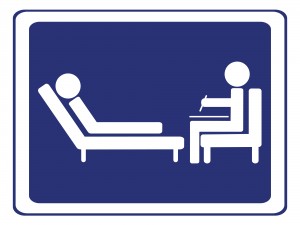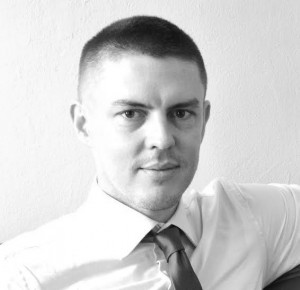Those who dream of a career in psychology as a
social worker,
therapist,
counselor or
psychologist typically envision their future in terms of how they will help other people. While that premise is most certainly true, there is a less thought-of benefit which will also emerge:
In the process of assisting others to uncover their “best selves” the practitioner will also evolve and grow in a myriad of positive ways. Here are some of the many ways a career in psychology is more than a job and will benefit the professional:
Patience
Each and every person seeking counseling or therapy will change and transform at their own pace. Correspondingly, family systems and group dynamics are also unique in their growth patterns. Upon embarking on their career, a professional in the field of psychology must come to terms with the fact that there are natural timelines set by the people and situations with whom they interact. They learn that they are not in charge of, nor responsible for “making things happen.” This is the job of others to embrace; clients must choose to change and grow. Over time, these hard-working psychology professionals relax. They accept. Leaving frustration behind, they focus on honing their professional skills and expanding their areas of expertise. They allow. They nurture and watch things bloom. They become patient.
 Laura Reagan, LCSW-C
Laura Reagan, LCSW-C, is in private practice in Severna Park, Maryland. She has spent over a decade helping people as a Trauma Specialist; assisting people to liberate themselves from overwhelming tragedy and loss. In 2014, Laura finished The Daring Way™ training and is on the road to becoming fully certified. Laura shared with CIP;
A career in psychology requires patience. When you are working with people, you encounter many personalities and behaviors which may differ from the ways of relating which feel familiar to you. Inevitably some situations will be uncomfortable for you, and you will find yourself wanting to respond in anger, to withdraw from the helping relationship if you feel hurt, or to lash out in frustration. However, as a professional, if you react in accordance with your own feelings you risk causing harm to the client/consumer you are there to help. You must learn to put aside your own feelings in such situations to address the client's needs in the moment and then seek consultation or supervision to sort out your reaction and decide on the best course of action in addressing the incident with the client, if that is appropriate in the setting. This takes immense patience!
Appreciation
Since the beginning of time, experts in a variety of disciplines have declared that an appreciative person is a happy person. The theory seems to be accurate and impenetrable--try holding powerful thoughts of appreciation and ones of unhappiness at the same time. Difficult if not impossible to do! Since an appreciative attitude begins where “poor me” thinking leaves off; it is inevitable that the pain encountered in the course of working with others would inspire a psychology professional to count their blessings. The fact that there is always a person dealing with something more challenging than you are is a relentless reality in psychology-based careers. Appreciation eventually becomes not something hard to strive for, but actually a go-to position. At the end of the day, one is left feeling fortunate, thankful and appreciative.

Dr. Colleen Mullen, Psy.D., LMFT, is an expert in Motivation, Achievement and Recovery Coaching. She founded the “Coaching Through Chaos” center in San Diego, California. She has appeared on ESPN 1700AM Radio and was recently featured in a Forbes.com article, "
Where Do CEOs With Addictions Go When They Hit Bottom?" Her insights into how appreciation is a natural by-product of a psychology career are as follows:
Helping another make changes in their lives through the process of their own therapy certainly has benefits for my own life outside of my role as a therapist. Even though we all have struggles, I think that being a part of the “working through” of other peoples’ struggles gives me such an appreciation for the good in my life that I may just take for granted otherwise. That would be probably the benefit I feel deepest and most often.
Additionally, I’ve become much savvier about my own communication in my personal relationships – I have a deep understanding of the pain/love that good/bad communication can facilitate. Lastly, I believe that I am much more cognizant of staying present in my daily life – really engaging in activities in my down time that bring me joy and help me develop and grow myself as a person.
Compassion
Compassion is not a quality handed out at graduation or when a degree or license to practice in the field of psychology is granted; even though it is essential to being in the field. Truly gifted professionals see their clients not as cases or appointments, but as unique individuals who benefit greatly from their compassionate responses and demeanor.
 Megan Bearce, MFT
Megan Bearce, MFT, author of
Super Commuter Couples: Staying Together When A Job Keeps You Apart, is an expert in the field of support and therapy for couples under pressure due to one or both partners commuting. She is also a specialist in the field of gifted girls as well as assisting “supermoms.” Megan is acutely aware of how her job as an MFT requires differing qualities than other professions; she can readily contrast it with her former career as an auditor and CPA at 20
th Century Fox.
Our job is to sit and listen and witness people face and ideally overcome obstacles and suffering whether that is from trauma, divorce, loss, or struggles with anxiety or depression and that has made me a more compassionate person, less quick to judge others when I'm out of my office and in the world. The stories we hear also can put our own struggles into perspective and serve as inspiration. I'm always learning from my clients. I also feel like what I learn in working with clients and by attending various Continuing Education Units (CEU) training makes me a better parent and partner in my own relationships.
Listening
Some of the questions a counselor, therapist, social worker or psychologist must eventually ask themselves are:
- “Am I a good listener?”
- “When I listen do I hear?”
- “Does my attention wander?”
- “Do I constantly strive for healthy communication skills?”
- “Am I just a person who can listen; or am I truly a listener?”
 Lanada Williams, MA, LPC, NCC
Lanada Williams, MA, LPC, NCC; the solution-focused counselor and star of “The Lanada Williams Show” has garnered her insight into the vital role of proper listening as CEO of a private practice—“Alliance Family Solutions, LLC” in Washington, D.C.; as well as having worn multiple hats at the Department of Behavioral Health Office of Programs and Policy Child and Youth. She shares her wisdom:
Communication is the key to any successful relationship, business, personal, or social. The art of listening has been the root of understanding and displays that a level of attention is being given to the person talking. I know this career in psychology has increased my ability to actively listen and show empathy. Simply paying attention makes me a better mother, friend and colleague.
Optimism
According to Webster’s Dictionary, optimism is:
A feeling or belief that good things will happen in the future: a feeling or belief that what you hope for will happen.
Without optimism, professionals in psychologically-based careers would no doubt feel ineffective and helpless. After all, you can’tmake people change. But you can learn to trust the healing process and once you have a few “miracles” under your belt, you can behave optimistically under any client-based circumstance.

Profiled Expert
Elizabeth Sullivan, MFT, co-founded the therapy center; Psyched in San Francisco, as well as worked as Editor of
Psyched Magazine. She is a graduate of the cutting-edge institution--the California Institute of Integral Studies and actively works for social change in a variety of areas. She shared her feelings with us:
A career in psychology helps you be a better person by making an optimist out of you as you witness people with terrible struggles grow and change. It also gives you the chance to have intimate relationships with people, and that practice is useful for improving relationships with your family and friends. And each client is fascinating, engrossing, surprising and unique--so you can always grow in your work and you don't burn out.
Conclusion
To summarize, the following qualities are those you can look forward to experiencing in your psychology-based career:
- A patient person will emerge from within you.
- Appreciation will be a go-to mindset.
- Compassion and empathy will become your wingmen.
- Your listening skills will heighten, as will your communication skills.
- In the words of Johnny Mercer you’ll learn to, “Accentuate the positive; eliminate the negative and latch on to the affirmative”. In other words, you will become an optimist.
As our experts shared, a career in psychology will not only develop your professional life—it will actually help you to become a more fulfilled and actualized human being. And all of these exemplary benefits just happen to come with one more thing; a paycheck!
 Laura Reagan, LCSW-C
Laura Reagan, LCSW-C Dr. Colleen Mullen, Psy.D., LMFT, is an expert in Motivation, Achievement and Recovery Coaching. She founded the “Coaching Through Chaos” center in San Diego, California. She has appeared on ESPN 1700AM Radio and was recently featured in a Forbes.com article, "
Dr. Colleen Mullen, Psy.D., LMFT, is an expert in Motivation, Achievement and Recovery Coaching. She founded the “Coaching Through Chaos” center in San Diego, California. She has appeared on ESPN 1700AM Radio and was recently featured in a Forbes.com article, " Megan Bearce, MFT
Megan Bearce, MFT Lanada Williams, MA, LPC, NCC
Lanada Williams, MA, LPC, NCC Profiled Expert
Profiled Expert  Michael Theisen, M.A., is a Professor of Psychology at City University of Seattle; a private nonprofit university dedicated to serving working adults and transfer students looking to start, change, or grow their careers. Dr. Theisen shares with us,
Michael Theisen, M.A., is a Professor of Psychology at City University of Seattle; a private nonprofit university dedicated to serving working adults and transfer students looking to start, change, or grow their careers. Dr. Theisen shares with us, Dr. Jenny Yip, Ph.D., is a clinical psychologist who specializes in OCD and anxiety. Dr. Yip is a Clinical Assistant Professor of Psychiatry at the University of Southern California - Keck School of Medicine. She shares,
Dr. Jenny Yip, Ph.D., is a clinical psychologist who specializes in OCD and anxiety. Dr. Yip is a Clinical Assistant Professor of Psychiatry at the University of Southern California - Keck School of Medicine. She shares, Jessi Lail, MA, earned her Master’s Degree in Psychology from New Mexico State University, where she has also been a professor and departmental advisor,
Jessi Lail, MA, earned her Master’s Degree in Psychology from New Mexico State University, where she has also been a professor and departmental advisor, Misha Granado, MPH, MS has her Bachelor’s Degree in Psychology, her Master’s Degree in Community Psychology and a Master’s Degree in Public Health (emphasis on Behavioral Health);
Misha Granado, MPH, MS has her Bachelor’s Degree in Psychology, her Master’s Degree in Community Psychology and a Master’s Degree in Public Health (emphasis on Behavioral Health); Lori Woodring, Ph.D., is a psychologist licensed in NY and CT. She received her undergraduate degree in Human Development and Family Studies from Cornell University and her graduate degrees (MS, PD, PhD) from Fordham University. She has also taught in the Graduate School of Education at Fordham (NYC),
Lori Woodring, Ph.D., is a psychologist licensed in NY and CT. She received her undergraduate degree in Human Development and Family Studies from Cornell University and her graduate degrees (MS, PD, PhD) from Fordham University. She has also taught in the Graduate School of Education at Fordham (NYC), Leslie Davenport, MFT, is a licensed MFT in practice for more than 20 years, teaches at two Universities and is a published author,
Leslie Davenport, MFT, is a licensed MFT in practice for more than 20 years, teaches at two Universities and is a published author, Like any other type of professional internship, a counseling internship is meant to prepare the intern for a professional career regardless of what field it’s focused on. Though a counseling internship may seem similar to any other type of internship, there’s more involved to a counseling internship than what most people might expect. When a prospective counselor goes through the internship process that individual would likely gain a variety of experiences that are intended to assist that person in their professional career as a counselor. These experiences can include anything from clinical interviewing, either individual or group counseling or even psychotherapy, along with supervision and training and crisis intervention; all various degrees of the counseling career. These are essentially the skills that a counseling intern can expect to gain over the course of the internship, but those who participate in this type of internship have vastly different experiences than someone who participates in a different type of internship, particularly that in the law field. Counseling internships tend to focus on a different kind of learning, specifically that of learning by observing prior to placing the newly developed skills into practice and this is all while relying on previously completed research as a form of reference. Although this type of internship may seem somewhat overwhelming, the main incentive behind designing the counseling internship in this way is to allow interns an opportunity to work independently without supervision, and gain a feel for what their professional lives as counselors will entail. Aside from simply enhancing the requisite experience and knowledge base that’s required for working as a counselor, an internship also allows interns the opportunity to work towards the required license for working as a counselor. These counseling interns usually form awareness, along with knowledge and skills in the area that relates to professional psychology. For instance, one of these skill types include clinical skills and what the clinical aspect of counseling relates to is the initial assessment, along with referral and report writing (Counseling and Psychological Services).
Like any other type of professional internship, a counseling internship is meant to prepare the intern for a professional career regardless of what field it’s focused on. Though a counseling internship may seem similar to any other type of internship, there’s more involved to a counseling internship than what most people might expect. When a prospective counselor goes through the internship process that individual would likely gain a variety of experiences that are intended to assist that person in their professional career as a counselor. These experiences can include anything from clinical interviewing, either individual or group counseling or even psychotherapy, along with supervision and training and crisis intervention; all various degrees of the counseling career. These are essentially the skills that a counseling intern can expect to gain over the course of the internship, but those who participate in this type of internship have vastly different experiences than someone who participates in a different type of internship, particularly that in the law field. Counseling internships tend to focus on a different kind of learning, specifically that of learning by observing prior to placing the newly developed skills into practice and this is all while relying on previously completed research as a form of reference. Although this type of internship may seem somewhat overwhelming, the main incentive behind designing the counseling internship in this way is to allow interns an opportunity to work independently without supervision, and gain a feel for what their professional lives as counselors will entail. Aside from simply enhancing the requisite experience and knowledge base that’s required for working as a counselor, an internship also allows interns the opportunity to work towards the required license for working as a counselor. These counseling interns usually form awareness, along with knowledge and skills in the area that relates to professional psychology. For instance, one of these skill types include clinical skills and what the clinical aspect of counseling relates to is the initial assessment, along with referral and report writing (Counseling and Psychological Services).
 Another expert,
Another expert,